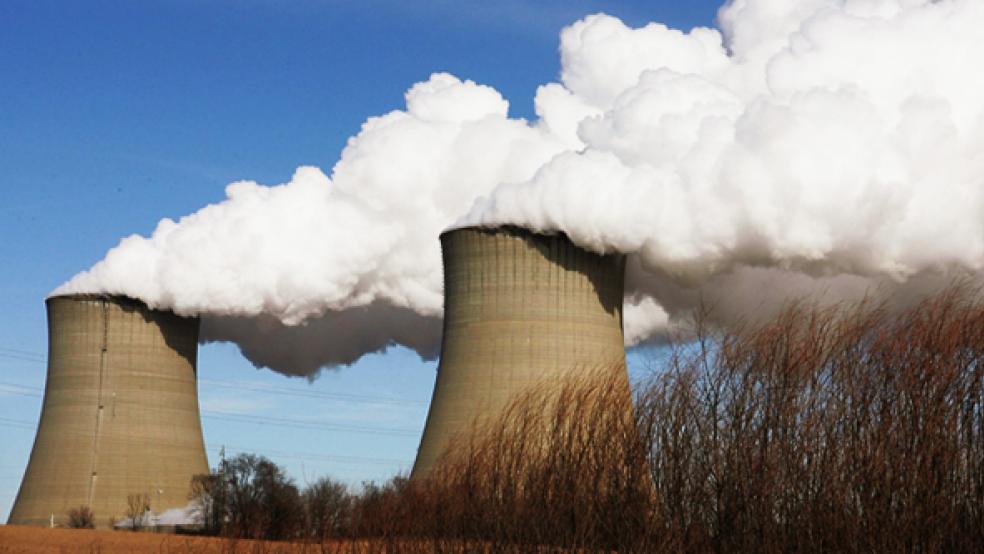At SCE&G's V.C. Summer Nuclear Station, a massive blue crane splits the South Carolina summer sky, a telltale sign of the $10 billion project underway.
The SCANA Corp. unit is in the midst of building two new nuclear reactors in Jenkinsville, S.C. They are the first reactors to be built in the U.S. in 30 years, on a 240-acre site that already houses SCE&G's three-decade-old V.C. Summer Unit 1. At its peak, the project will employ 3,500 construction workers, but the utility is focused on hiring people for a different type of work. "We're going to bring on about 800 workers to support the staffing for our operating plants," said Jeffrey Archie, the utility's chief nuclear officer.
SCE&G is not alone in looking for new employees for nuclear facilities. The Nuclear Energy Institute estimates that 39 percent of the nuclear workforce will hit retirement age by 2018, meaning the industry will have to hire 20,000 new workers over the next four years to replace the retirees. More recently, that hiring has not shown up in jobs statistics. In the May jobs report out Friday, in which 217,000 jobs were created with the unemployment rate at 6.3 percent, the workforce at utilities remained essentially flat at 550,000 from April.
Related: Jobs Market Reaches Another Meaningless Milestone
"We'll be looking for folks with a background in physics, engineers, maintenance workers, mechanical instrument and control technicians, electricians and also chemists," said Archie. He said 450 of the planned 800 staffers for the two new reactors have already been hired even though the first won't be online until late 2017 or early 2018. "We were going to be doing a lot of training and instructing so we hired instructors first," said Archie, a 36-year veteran of the utility.
Once the instructors were certified on the new technology, the company brought in operators, he said. The operators are undergoing training now on a simulator that mimics the Westinghouse AP1000 reactors that SCE&G is installing. The utility is also bringing in engineers and maintenance workers.
The Cayce, S.C.-based utility declined to say what it pays its new hires. The nonunion company said the pay is "competitive" with a full benefits package. The Nuclear Energy Institute said the median salary for an electrical technician at a nuclear plant is $67,571, for a mechanical technician $66,581 and for a reactor operator $77,782.
To make sure the 800 positions are filled, SCE&G has been recruiting from within the industry, the military and from local high schools, two-year and four-year colleges. One of the schools its partnered with is Columbia, S.C.-based Midlands Technical College. SCE&G approached the school in 2008 and asked Midlands to create a curriculum to train unlicensed nuclear operators. The utility would then hire from the pool to become licensed nuclear operators. Midlands agreed and launched the program in 2009, the same year that SCE&G broke ground on the the new reactors.
Related: Solar-Powered Roads Can Pave a Path to Energy Riches
"Our foremost efforts at Midlands is to understand the needs of our customers in our region and then try to provide them with the skilled credentialed workforce that will get the job done," said Marshall "Sonny" White Jr., Midlands president. "This is a wonderful opportunity with a two-year associate's degree to become a nuclear operator where you can have a job for life if you can keep yourself clean," he said.
Midlands itself recruits students from high schools, four-year colleges and underemployed adults or adults looking to make a career change. Right now, about 100 students are enrolled in the two-year program, and White said 85 to 90 percent of graduating classes have found jobs once they have graduated.
Wesley McQueen is one of them. The 25-year-old father of one with another baby on the way was a temporary state worker when he heard about the Midlands program, from which he graduated in May 2013. "I really didn't know a whole lot about the nuclear industry at all, to be honest with you," said McQueen. "It was more or less an avenue to take to get my foot in the door of a good company."
McQueen was hired by SCE&G in September. He is a nuclear mechanic and will work on maintaining and fixing the pipes, valves, or whatever needs attention. He is in a two-year training program at the company, but it will be four or five years before he can work on his own without the oversight of a seasoned employee. Also, like others in the industry, he will be subject to ongoing training and testing to assure he is capable of working on the equipment.
Kimberly Hall, 37, hopes to be among the 800 hires. A native of Fairfield County where the reactors are located, she gave up her job in the drug industry to come to the Midlands nuclear training program. "It's the process that you can take uranium and power an entire city," Hall said when asked why she switched.
With a master's degree in chemistry, Hall is in an accelerated program that allows her to finish Midlands program in a year. After that she has designs on becoming a reactor operator, the person who ensures the plant is powered the way it should be.
"We want folks who are eager to learn," said Archie, when asked what skills a future employee would need. "We invest a lot in training, so we want folks that will embrace training and by and large have a great work ethic and really appreciate what we are trying to do for our customers, which is to provide clean, safe reliable energy." When the reactors are up and running they will each be able to power 640,000 homes, not to mention providing up to 800 people a chance at to power their careers.




